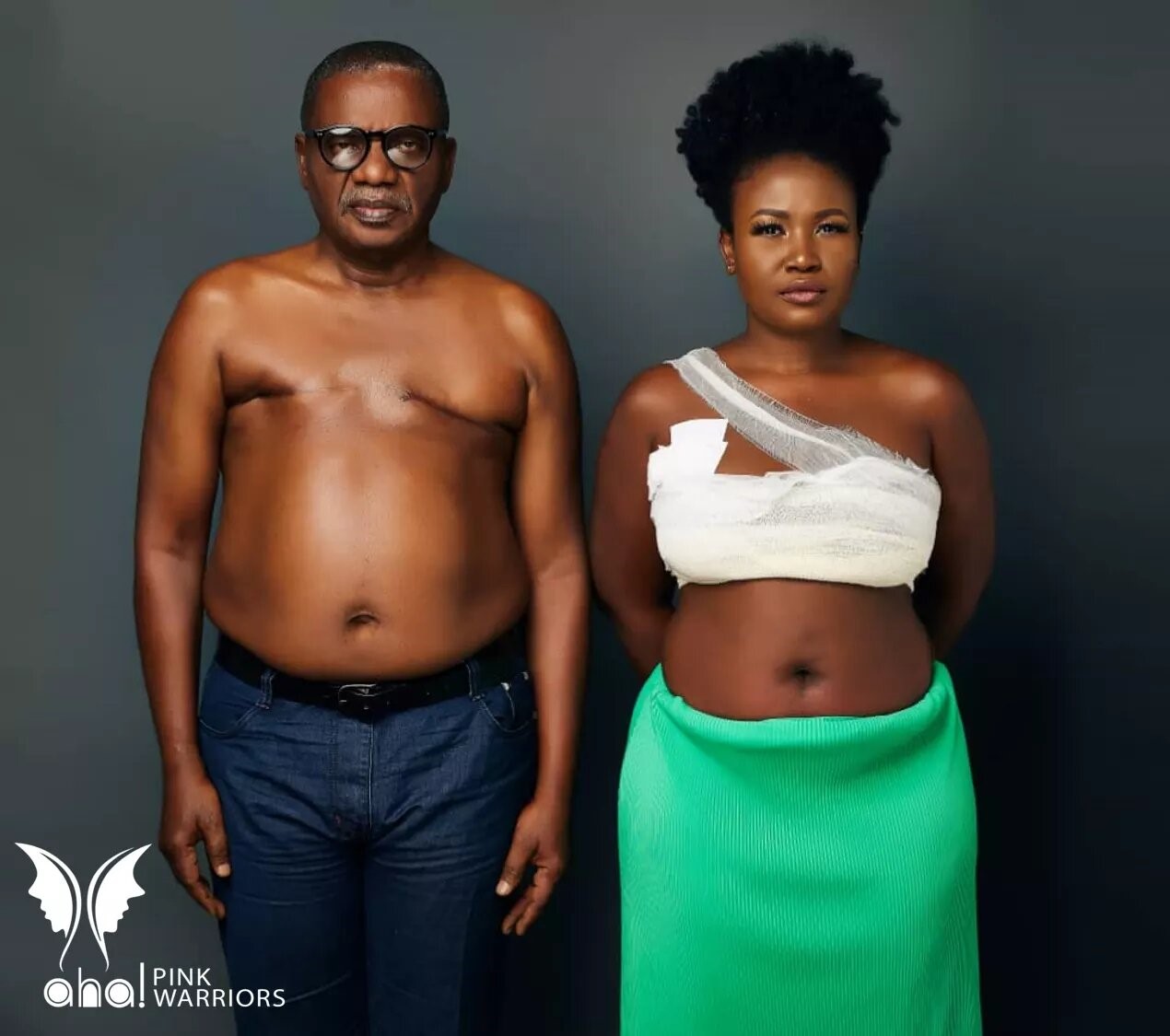Josie looked downcast, “I hate breast cancer…” She was speaking to me about her mother’s journey with this terrible disease that is yet to have a cure. It was her mother’s 55th birthday and a surprise party had been organised for her. It was a beautiful day with their family and friends milling around them, enveloping them in love and so much care
Josie’s mom- Ms. Wizzy, I call her- was looking radiant on her birthday. You couldn’t tell she was battling breast cancer, except for the stylish back-support brace she wore over her white dress.

She had in the week before, told us, via a fundraiser event by friends in Ghana and the USA, that the cancer has now spread to her lungs and spine. Ms. Wizzy keeps a very upbeat and spiritual aura about her, smiling whilst the rest of us gasp at the news she just shared. I thought to read up some more on it to share with you.
Breast Cancer- what is it?
Breast cancer is a kind of tumor that develops in the cells of a person’s breast. The human body is made of cells. If a cell changes into an abnormal, sometimes harmful form, it can divide quickly repeatedly without dying, making many copies of itself. When this happens, a tumor can start to form and grow. Someone with breast cancer may have cancer cells in just one part of the breast, which might be felt as a lump. The cancer can spread throughout one or both breasts and to other parts of the body, like the liver, lungs, etc.
What are the signs?
Someone who has breast cancer may (or not) find a painless lump in their breast. If women examine their breasts monthly, that can help find lumps or other changes that a doctor should examine. Girls who are beginning puberty might notice a lump underneath the nipple when their breasts start developing. Usually, this is normal, but you can ask a parent or your doctor about it to be sure. Breast lumps that are not cancer may be scar tissue or cysts (fluid-filled lumps) or due to normal breast changes associated with hormone changes or aging.
Does it affect only women?
Well, guess what I found out?! 10-year-old Chrissy Turner of Utah, USA has become the youngest patient to be diagnosed with breast cancer; she found a lump on her breast when she was only eight. In 2015, she underwent a mastectomy which removed her right breast tissue to prevent spreading. You may think that only women can get breast cancer, but because all people have breast tissue, men (and young people) can get breast cancer as well though this is not common. This terrible disease spares no one!
How Is Breast Cancer treated?
Treatment for breast cancer usually depends on the type of cancer and whether the cancer has spread outside of the breast to other parts of the body. Some common treatments include:
- lumpectomy(say: lum-PEK-tuh-mee), which removes the cancerous tumor from the breast. One usually has this surgery when the cancer is found early and when the lump is small and in only one part of the breast.
- mastectomy(say: ma-STEK-tuh-mee), which removes the whole breast. This surgery is done when cancer cells have spread through the breast or into other parts of the body. It’s a good way to remove all or most of the cancer and can help prevent the cancer from spreading or coming back.
- radiation therapyand chemotherapy, which are often used after lumpectomy or mastectomy to make sure that all the cancer cells are destroyed and do not grow back. Radiation (say: ray-dee-AY-shun) therapy uses high-energy X-rays to kill the cancerous cells. Chemotherapy (say: kee-mo-THER-uh-pee), or chemo, is special medicine that travels throughout the entire body and kills cancer cells.
Can breast cancer be prevented?
Whilst a cure is yet to be found for breast cancer, it’s important for women to catch the disease early. Regular mammograms — together with monthly breast self-exams — are the best ways for women to protect themselves.
Josie and her mother are one of many families battling this terrible disease and remain hopeful they will beat this disease. Researchers are working tirelessly to find a cure. October is Breast Cancer Month and lots of people raise funds and awareness to help minimise the harsh effects of it. And the official colour for the month is pink. How can you support? Read up some more on breast cancer and start a conversation with your friends about what you can do; pink is for us all.
>>>The writer is a passionate educator who makes learning fun for children under 18 through co-curricular programmes. Through her charity organisation, Young Educators Foundation (YEF) in Ghana, the programmes portfolios have expanded to include literacy programmes in local languages as well as public speaking programmes for the youth.
Based on her work in education and with children, Eugenia is the recipient of many nomination and awards such as a presidential award for the contribution to education over the past decade in 2018. In 2019, she was named as one of the 74 individuals in Those who Inspire Ghana, a global programme that identifies nationals whose experiences are worth sharing.
Eugenia believes that children are not the ‘future’, but rather the ‘present’ and so the need to invest in their total development. She is a regular contributor on radio and television shows as well as various public fora on this and related topics.










